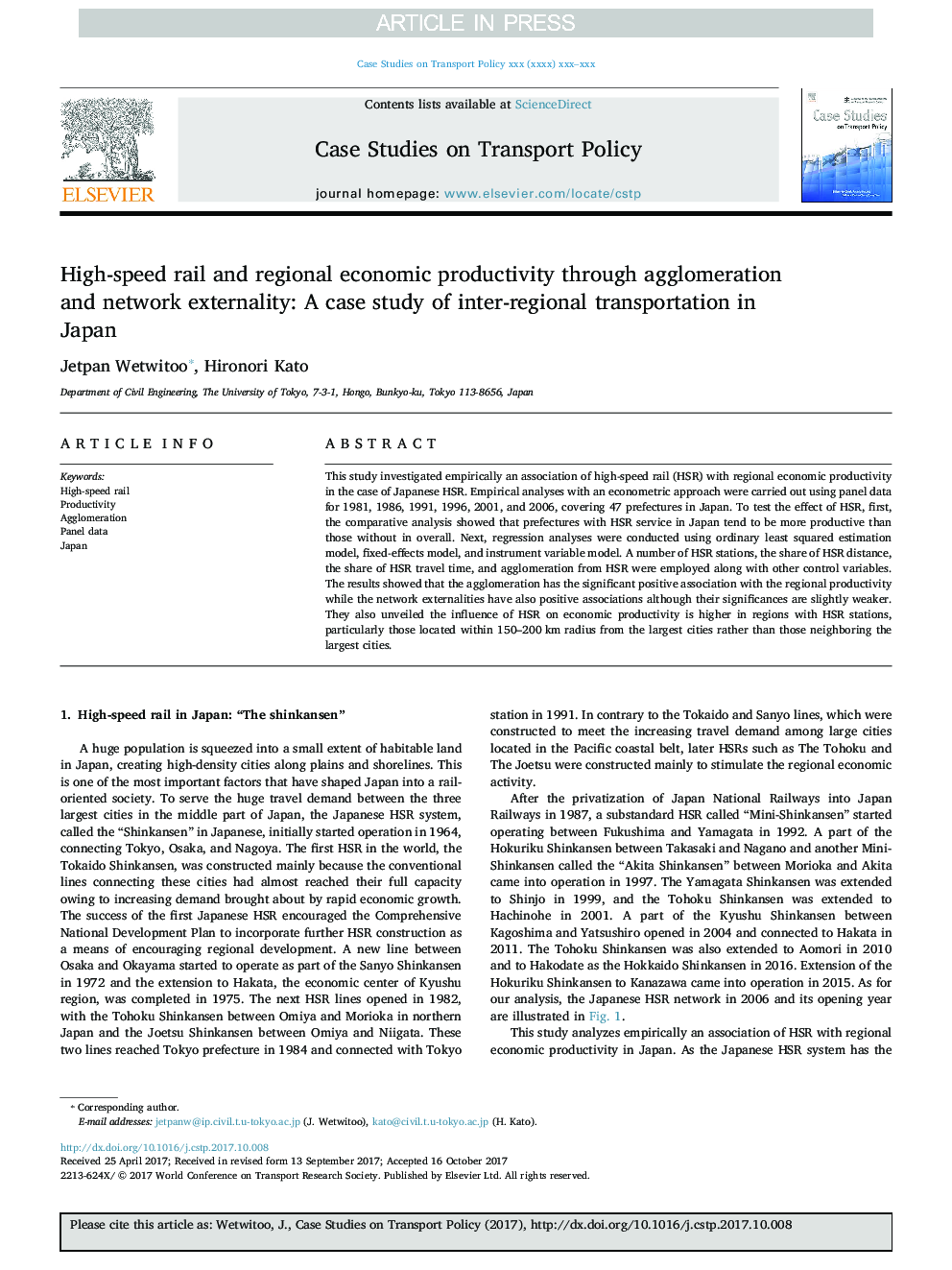| Article ID | Journal | Published Year | Pages | File Type |
|---|---|---|---|---|
| 6702292 | Case Studies on Transport Policy | 2017 | 11 Pages |
Abstract
This study investigated empirically an association of high-speed rail (HSR) with regional economic productivity in the case of Japanese HSR. Empirical analyses with an econometric approach were carried out using panel data for 1981, 1986, 1991, 1996, 2001, and 2006, covering 47 prefectures in Japan. To test the effect of HSR, first, the comparative analysis showed that prefectures with HSR service in Japan tend to be more productive than those without in overall. Next, regression analyses were conducted using ordinary least squared estimation model, fixed-effects model, and instrument variable model. A number of HSR stations, the share of HSR distance, the share of HSR travel time, and agglomeration from HSR were employed along with other control variables. The results showed that the agglomeration has the significant positive association with the regional productivity while the network externalities have also positive associations although their significances are slightly weaker. They also unveiled the influence of HSR on economic productivity is higher in regions with HSR stations, particularly those located within 150-200Â km radius from the largest cities rather than those neighboring the largest cities.
Related Topics
Physical Sciences and Engineering
Engineering
Civil and Structural Engineering
Authors
Jetpan Wetwitoo, Hironori Kato,
